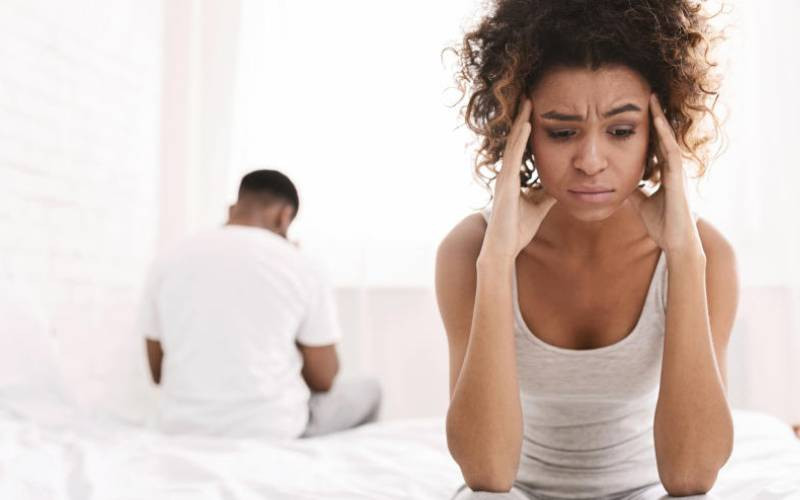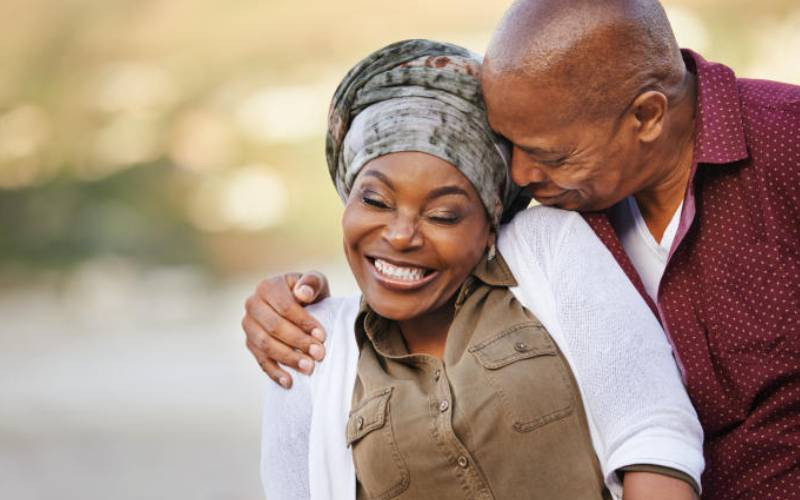
In the last week, the world has lost two iconic people to death by suicide; Kate Spade (55), a celebrated designer and Anthony Bourdain (61), a chef so iconic that he got a personal tribute from President Barack Obama. Bourdain had been to Kenya earlier this year as part of his work.
These deaths have shocked those who knew them in life as well as those who ‘knew’ them from their work. Yet, so many more lives have been ended as a result of suicide; men, women and children like you or me have reached the point of no return and chosen the ultimate goodbye. These recent deaths have led me to this article after I felt the need to state and articulate some truths about depression and sex.
Depression is an exhausting, insidious disease that warps your reality and robs you of your dignity and humanity. It makes you believe the worst about yourself and your life while simultaneously shaming you for being unwell in the first place, thus making it difficult to seek support. Add to that our Kenyan culture that seems to believe that depression or any mental illness is equal to “wazimu”, which is assumed to be a blight to a family’s bloodline.
When the depressed person is your partner (or other loved one) you can feel helpless, scared, worried and more. It can also make you feel angry – especially if you perceive it to be a question of ‘just getting over it’. Initiating sex, or even having sex with a partner who is living with depression can also be confusing; should you or should you not? Is it OK for you to desire them sexually? What can you do? Here are a few thoughts that I hope will act as a positive guide for you both.
1. Act
If you suspect depression in yourself or your partner, act.
The action could be bringing it out in the open through a candid but compassionate discussion, it could be getting them medical attention or mental health support, it could be calling a trusted family member to help you communicate the seriousness of your concerns. You can even offer to accompany them as they seek treatment; I have found it to be tremendously compassionate when people have come to my office for support accompanied by a loved one. You know what? My clients seem to experience it the same way, so be that person who shows up as a support. Whatever you choose to do, be calm, kind and empathic.
2. Connect. Be Present
It is important to be present even if you feel like there isn’t much that you’re ‘doing’. It is important that your partner sees you and feels you. What you choose to do with that presence is usually irrelevant. What is most important is that you are physically present, or as connected as you can be depending on logistics. We have a culture that believes sending money is enough but if you are a central person in this person’s life, your actual physical presence is needed. You could be cleaning the house or doing dishes or watching a movie or a game; the ‘what’ isn’t as important as your presence.
3. Listen
No, you are not that person’s therapist but you are their lover, partner, friend or whatever other title might fit. It is important that you be a trustworthy and kind person. Ask them questions such as “how can I support you right now?”, “what do you need right now?”. If they do share anything with you, keep it confidential. If they say they don’t want to talk, see step 2 above. If they say that they just want to be left alone, express your concern at leaving them alone and then offer to do something that does not necessarily require their input. They might join you, they might not but they’ll see you trying. At the same time, be honest; if you don’t know then you don’t know so say so. “I don’t know how to help but I would like to stay with you here” or whatever else fits. Avoid overused expressions or religious talk; many people in the throes of depression feel hurt, alone and abandoned. It is more helpful for them to know that you are there than to feel ‘preached at’ about a higher power’s ability. If they bring it up however, engage and be willing to listen instead of advising or preaching.
4. Sex
The interesting thing about sex is that it is often viewed in a romantic way but sometimes it can surprise you. Someone once told me that the death of their friend heightened their sexual appetite. An exploration of this brought to light that they were desiring sex as a reminder that they were alive, because their friend’s death made them feel dead inside. Do not be surprised if someone’s sexual appetite is increased, and do not be surprised if it is completely turned off. If you and your partner are up for it, have sex. If not, there are many other options like kissing, cuddling or just laying side by side.
Depression is a disease of the mind and, like many diseases, it is treatable and manageable. Your love and support is a critical piece of a holistic treatment protocol. As for the sex, take the pressure off yourself and your partner and allow it to be what it needs to be for a while. With treatment, your partner – and your sex life – will begin to return to ‘normal’. Until then, love, support and connect with one another.
Maggie Gitu holds an MA in Marriage & Family Therapy. She practices as a Marriage, Family & Sex Therapist. Reach her at [email protected] or via her Facebook page: Maggie Gitu
 The Standard Group Plc is a multi-media organization with investments in media
platforms spanning newspaper print
operations, television, radio broadcasting, digital and online services. The
Standard Group is recognized as a
leading multi-media house in Kenya with a key influence in matters of national
and international interest.
The Standard Group Plc is a multi-media organization with investments in media
platforms spanning newspaper print
operations, television, radio broadcasting, digital and online services. The
Standard Group is recognized as a
leading multi-media house in Kenya with a key influence in matters of national
and international interest.








